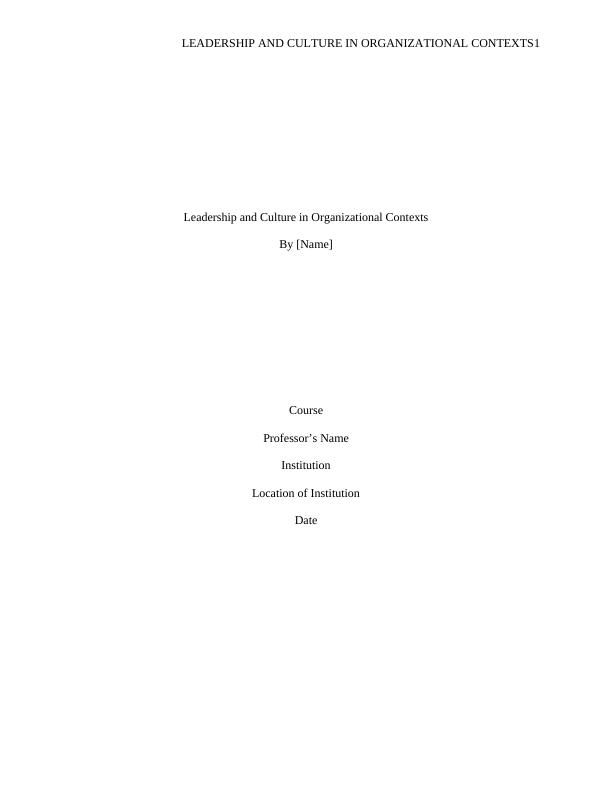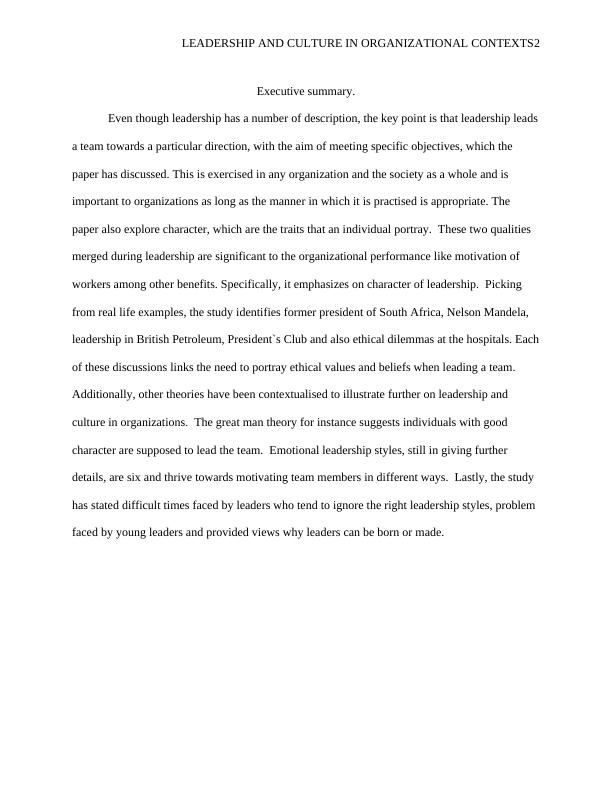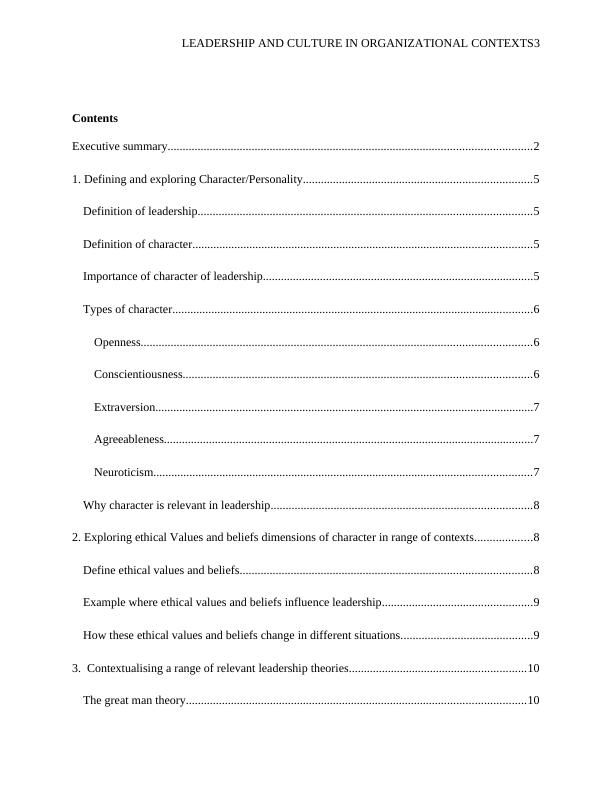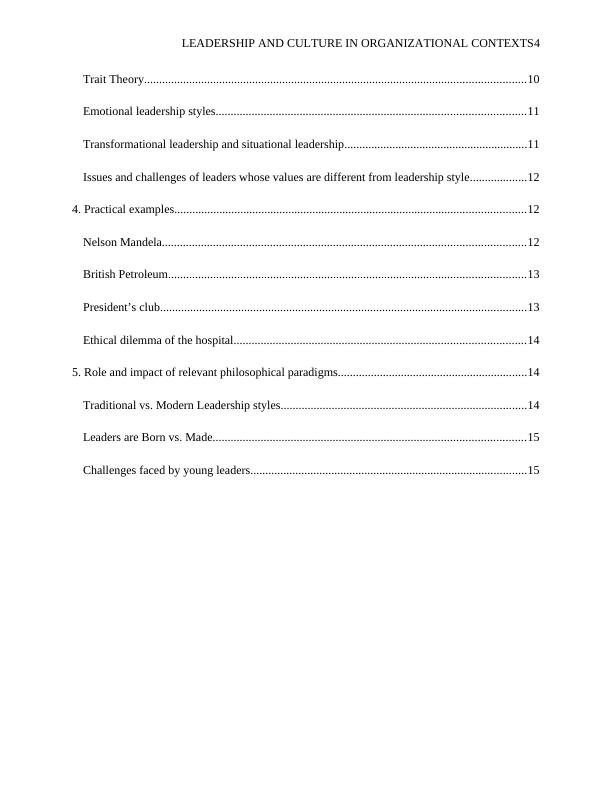Leadership and Culture in Organizational Contexts
The trouble with management and organisation theory, Maslow's Hierarchy of Needs, People as rational?, Three metaphors for the nature of organisation, Power: Knowledge, rationality and the influence of science, Leadership Traits and Skills, Distributed Leadership: Friend or Foe?, The Emerging Significance of Values Based Leadership, Instrumental leadership: Measurement and extension of transformational–transactional leadership theory
Added on 2023-06-11
About This Document
Leadership and Culture in Organizational Contexts
The trouble with management and organisation theory, Maslow's Hierarchy of Needs, People as rational?, Three metaphors for the nature of organisation, Power: Knowledge, rationality and the influence of science, Leadership Traits and Skills, Distributed Leadership: Friend or Foe?, The Emerging Significance of Values Based Leadership, Instrumental leadership: Measurement and extension of transformational–transactional leadership theory
Added on 2023-06-11
End of preview
Want to access all the pages? Upload your documents or become a member.




